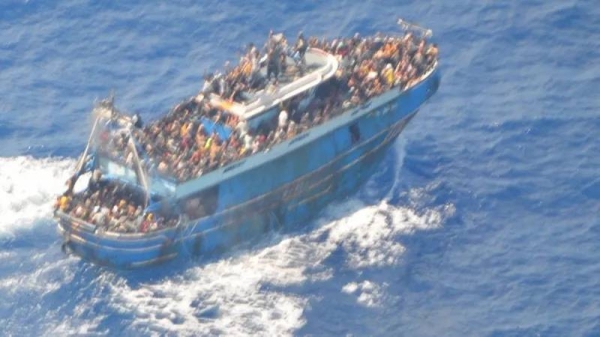The trial of nine men accused of causing the worst migrant shipwreck in the Mediterranean Sea in a decade has raised concerns about the integrity of the Greek investigation and whether the defendants will receive a fair trial. The defendants, all Egyptian, face charges of people-smuggling and causing the sinking of a fishing boat last June in which as many as 600 people are feared to have drowned. Human rights groups, including Amnesty International and Human Rights Watch, have questioned the evidence and the actions of the Greek coastguard in the case.
The accused are being prosecuted based on evidence that has been contradicted by at least six survivors who claim that the coastguard caused their boat to capsize and pressured them to frame the defendants. The Greek coastguard denies any wrongdoing and insists that their actions did not lead to the disaster. The trial is set to take place in the southern Greek coastal city of Kalamata, where the defendants are facing life in prison if convicted. The boat sank in international waters but within Greece’s demarcated rescue area, resulting in the deaths of hundreds of migrants.
The prosecution alleges that the nine defendants were part of a smuggling gang and charged passengers between $4,000 and $8,000 for a spot on the overcrowded vessel. The charges are based on interviews conducted by the coastguards themselves with survivors in the days after the disaster. Some survivors claim they were pressured into identifying the defendants as traffickers, while others believe the Egyptians were framed. The case also raises questions about the actions of the Greek coastguard and their response to the sinking.
The Greek prosecution’s case contradicts the official account of the coastguard, which initially claimed the migrant boat was safe and did not need to be rescued. Survivors have alleged that a Greek patrol vessel caused the boat to capsize in a botched attempt to tow it, but this allegation is not mentioned in the court indictment. The Naval Court in Greece is investigating possible wrongdoing on the part of the coastguard, but the case remains at the preliminary stages. Defense lawyers have requested to examine survivors’ phones for potential evidence, but the investigating magistrate ruled that this would be futile.
Human rights groups have called for a comprehensive investigation into the liabilities of Greek authorities before any criminal trial of the Egyptian defendants. They warn that incomplete or questionable evidence could lead to an unfair trial. The Greek government has pledged to hold smugglers accountable and crack down on illegal crossings, but the outcome of the trial will be closely watched by international human rights organizations. The need for credible accountability for one of the worst shipwrecks in the Mediterranean is paramount, and the truth must be uncovered to prevent such tragedies from happening again.











